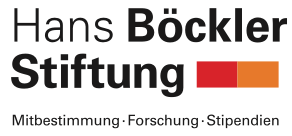ECJ proceedings on codetermination
A good day for codetermination in Germany and in Europe
The European Court of Justice (ECJ) ruled on 18 July in the Erzberger case that the German codetermination law is unqualifiedly in conformity with European law. Policy-makers in Germany and Europe should now build on that.


Judgment of the European Court of Justice in Case C-566/15 – Konrad Erzberger v TUI AG
"The German Law on employee participation is compatible with EU law"
The European Court of Justice (ECJ) ruled today in the Erzberger case that the German codetermination law is unqualifiedly in conformity with European law. Policy-makers in Germany and Europe should now build on that. Small shareholder Konrad Erzberger had called that into question and brought an action against the composition of the supervisory board of TUI AG, which is subject to codetermination. »Critics of German codetermination – first and foremost Mr Erzberger – came to grief in Luxembourg today. It has now been confirmed by the highest court: Germany’s board-level codetermination is compatible with European law without a shadow of a doubt«, says Reiner Hoffmann, chairman of the German Trade Union Confederation (DGB) and of the board of the Hans-Böckler-Stiftung. »This ruling is a major victory for democracy in the economy. The task now is to consolidate and expand on it. The ball is in the policy-makers’ court; their task is to adapt the successful model of codetermination to current challenges at European level and at German level«, according to Mr Hoffmann.
ETUC Deputy General Secretary Peter ScherrerThe Commission should take this latest ECJ ruling as reason for further action on effective workers’ participation rights. The judgment is a good sign for all Member States with well-established and far-reaching participation rights for workers.
The plaintiff, Mr Erzberger, had argued that the composition of TUI AG’s supervisory board is unlawful. Although the company has a large number of employees abroad only domestic employees could vote in or stand for supervisory board elections. In Mr Erzberger’s opinion, Germany’s Codetermination Act can apply only to employees in Germany – regardless of their nationality – and thus is not being applied in accordance with the law. The TUI supervisory board should therefore be composed solely of shareholders’ representatives. The Berlin court of appeal had submitted the action to the ECJ. The grand chamber of the ECJ has, by contrast, now made it clear that codetermination infringes neither free movement of employees nor the general prohibition of discrimination on the grounds of nationality.
»With its decision the ECJ has sent a decisive signal in a legal dispute that the renowned employment law professor Rüdiger Krause has justly described as, in legal terms, ›driving on the wrong side of the road‹«, says Dr Norbert Kluge, codetermination expert at the Hans-Böckler-Stiftung. »What would have represented an acute danger to millions of employees has thus been averted – and not only in Germany, but also in the other 17 EU countries in which employees enjoy legally enshrined codetermination in their companies’ management bodies«, adds Michael Guggemos, spokesperson of the Stiftung’s management board. »It is a concern, however, that what must be presumed to have been an attempt to nullify employee participation via European case law should have been allowed to get so far. That shows that even at the European level there is an urgent need to clarify and strengthen democratic rights in the workplace.«

Europe: Joint decision-making – a model that works
Employee involvement in decision-making is widespread in Europe. Even so, companies still try to avoid their obligations. European minimum standards could prevent that.
According to experts on codetermination the proceedings before the ECJ have created important conditions for this purpose. For example, the European Commission, in its opinion of 24 January 2017, expressly emphasised workers’ codetermination as an important political goal. The Commission even emphasised that »any possible restriction on the free movement of workers resulting from such rules can be justified by the need to safeguard systems of employee participation and their social objective«. In this connection the Commission also noted that »the European Commission has made the social dimension of the European project a priority of its work«.
»Advocates of codetermination in Germany and throughout Europe can take courage from this positive line and move forward with it«, says Michael Guggemos. That also means that »every new company directive from Brussels must demonstrate a satisfactory solution to European participation standards on protecting national codetermination systems«. The »company mobility package« announced by the European Commission must also be measured against this if it proclaims European rules on cross-border corporate mergers and splits.
Contact persons at the Hans-Böckler-Stiftung
Dr. Norbert Kluge
Head of the codetermination department
Tel.: +49 (0)211-7778-199
Norbert-Kluge@boeckler.de
Rainer Jung
Head of the press office
Tel.: +49 (0)211-7778-150
Rainer-Jung@boeckler.de

Background information on the ECJ case
The European Court of Justice (ECJ) had to decide whether the German system of employee board-level representation is compatible with EU law. A shareholder of the travel company TUI has brought an action to challenge the German rules on the choice of supervisory board members.
-
“Europe needs the voice of labour” (Interview with Norbert Kluge (HBS)
-
‘When in Rome…’ - Comments on the Advocate General’s opinion (Co-determination report 34)
-
The law concerning the election of employee representatives in company bodies (Co-determination report 29)
-
"Acid Test ECJ - The EU Commission´s opinion on the TUI Case – A critical commentary" (Co-determination report 23)

Worker's Voice in the 100 largest European companies
For the European expert group "Workers' Voice in European Corporate Governance", the 100 largest European companies were examined: How far is the influence of employees on company management?









